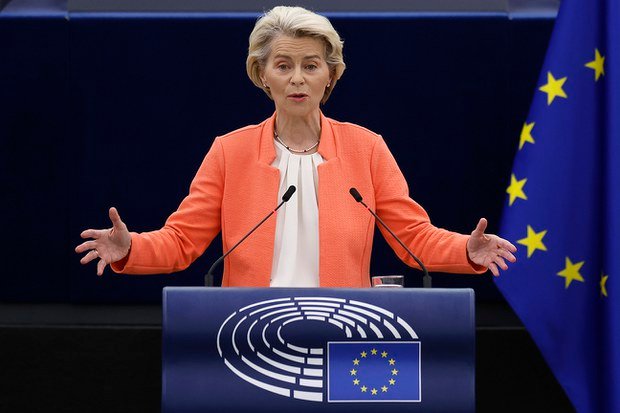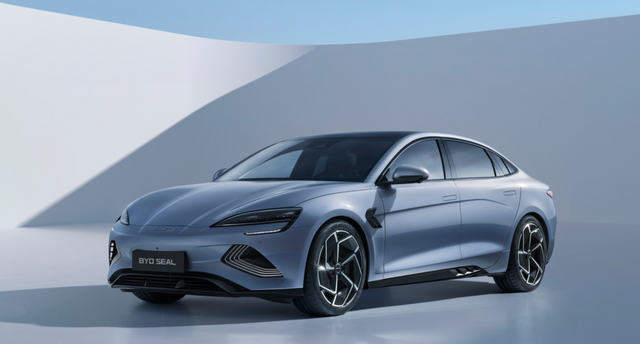
European Commission President von der Leyen announced that an anti-subsidy investigation will be launched against China's electric vehicles.
On Wednesday, September 13, European Commission President von der Leyen announced that an anti-subsidy investigation will be launched against China's electric vehicles. This news has caused widespread attention, especially in China, which has just become the world's largest exporter of automobiles. Is the investigation by the European Union reasonable? How will it be conducted? What impact will the investigation have on China's electric vehicle industry?
The news of the European Union's anti-subsidy investigation into China's electric vehicles has caused a particularly strong reaction in China.
In response, the Chinese Ministry of Commerce issued a strong statement on Thursday, stating that the investigation proposed by the European Union is a "blatant act of protectionism" under the guise of "fair competition" to protect its own industries. The Ministry of Commerce also warned that this practice "will seriously disrupt and distort the global automotive industry supply chain, including the European Union, and will have a negative impact on China-EU economic and trade relations."
The investigation will be difficult
Based on the current situation of China's automobile exports, China's response may be understandable. China's economy has slowed down significantly this year, especially with continuous declines in exports, but automobile exports have increased significantly and have surpassed Japan to become the world's largest automobile exporter. This is a bright spot in China's economy this year.
According to a research report published on the official website of CITIC Securities Co., Ltd., China's automobile exports have increased significantly in the past two years, with a year-on-year increase of 101% in 2021 and 51% in 2022. This trend of rapid growth is continuing this year. Although fuel vehicles are still the mainstay of China's automobile exports, the export growth of electric vehicles is also very significant: the export sales of electric vehicles in 2021 were 590,000 units, accounting for 29.5% of the total automobile exports, and the export sales in 2022 were 1.12 million units, accounting for 36% of the total automobile exports. The conclusion of the report is that in recent years, with the rise of China's electric vehicles, the growth of automobile exports has been driven, and China's automobile brands have gradually gained more voice in the world.
The report also mentioned that thanks to the brand power brought about by the rise of China's new energy vehicles, China's share of exports to Europe in the overall automobile exports has increased year by year, from 6% in 2018 to 26% in 2022, an increase of more than four times. On the other hand, according to a report on the website of Fortune magazine, the European Commission pointed out that China's share of the electric vehicle market in Europe has reached 8%, and this proportion will reach 15% by 2025.
The European Union's anti-subsidy investigation is undoubtedly a cold shower for China's booming electric vehicle exports. The language used by European Commission President von der Leyen was also very direct. She said: China's cheap electric vehicles flood the global market, and this low price is due to huge subsidies from the state, which artificially suppresses the market.
Von der Leyen's attitude is widely representative in Europe. According to Bloomberg, in fact, in recent months, France and some members of the European Commission have been pressuring the European Union to investigate Chinese electric vehicle manufacturers.
It is not surprising that the European Union accuses China's electric vehicles of enjoying huge government subsidies. In February of this year, Xinhua News Agency, China's official media, mentioned that the Ministry of Finance, the Ministry of Industry and Information Technology, and other departments had announced that the national subsidy policy for plug-in hybrid vehicles and pure electric vehicles of 4,800 yuan/vehicle and 12,600 yuan/vehicle respectively would be officially terminated on December 31, 2022. The BBC pointed out in its report that the subsidy policy had been in place for 13 years before it was terminated.
However, many people do not believe that the Chinese government has really terminated its subsidy policy for electric vehicles. Cai Shenkun, a financial commentator and one of the "Ten Most Influential Bloggers" on Phoenix Net, analyzed that there are both obvious and hidden subsidies, and it is not easy for the European Union to investigate: "If the European Union applies a lot of pressure, China may reduce the obvious subsidies, but the hidden subsidies will be increased."
He explained that hidden subsidies are carried out through means other than central finance, such as local finance, and are often not directly subsidized to electric vehicle manufacturers: "For example, subsidies in the sales link, subsidies in the supply of parts, etc. These are difficult to investigate. From my understanding, hidden subsidies are actually more than obvious subsidies."
Ding Hongbin, a professor at the University of Maryland's business school in the United States, also analyzed that there are some technical difficulties in investigating China's government subsidies, "such as how much money I give you when you sell a car, or how much money I lend you at low interest rates if you invest in a factory. Unless you find the original contract, unless you publicize it in a big way, it is actually difficult to investigate."
